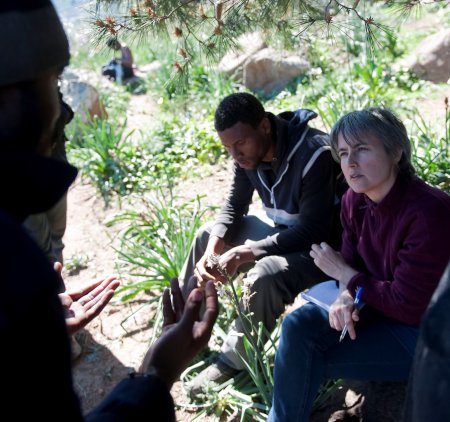
The narrative is the main battleground of the migration issue. For many years, migration policies have not been designed to manage the reality of human movement, but to construct a narrative that legitimizes states and their borders. Only the narrative is what makes Ukrainian refugees different from Syrians or Afghans, and that changes everything.
The borders of European states, like those of the United States, have become rights-free zones, spaces of exception where rights are systematically violated by the very states that claim to protect them. The violation of rights has turned into a spectacle, a sobering exhibition, for those who are willing to cross borders as well as for those who live within them. The results of migration policies are not only inhumane but also useless, if not counterproductive, in terms of human flows management.
I would say that immigration is one of the areas where political practice, and its narrative, is furthest from the findings of academic research. If migration experts were as present in political decision-making, or at least in public debate, as are military experts, jurists or economists, the narrative would be different, or at least there would be competing narratives, as is the case, for example, with the climate emergency.
This is the common challenge for migration researchers and journalists. We must find a way to work more closely together. We, journalists, can help to take our work beyond the limits of academic debate. And you, researchers, can help to put the spotlight where it is needed. This kind of cooperation is already going on, as this editorial shows, but it can definitely be improved in many ways. This can be done through common seminars, agenda-building meetings, linking journalists and researchers on both sides of borders, bringing in other actors like activists and NGOs, and developing mid- and long-term projects to keep the focus.
Everyday life under the pressure of today’s newsrooms allows little room to rethink our work, to reconsider our own stereotypes or to find new subjects to write about. We can easily underestimate new dynamics, forget about important actors, or ignore key scenarios that end up unreported. Sometimes we have trouble finding voices able to offer other angles of the story. This is where research can help us, but it must go beyond academic publications or meetings.
We are all under pressure in terms of time and money, but working together can help us both to save time and get funding. And on top of that, building bridges to make a visible counter-narrative is urgent and necessary.
You can find out more about Cristina Mas' work at https://es.ara.cat/firmes/cristina-mas/ and on Twitter: @cristinamas_
